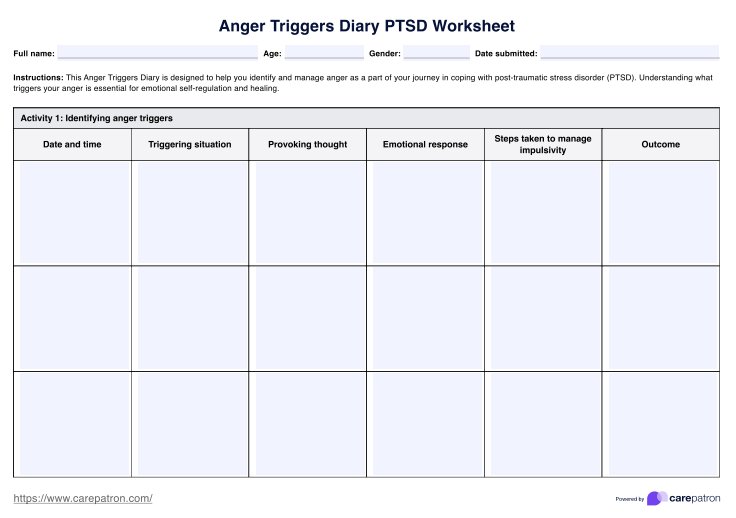The time required to complete the Anger Triggers Diary PTSD Worksheet can vary from person to person. Generally, it depends on the complexity of the triggering events and how detailed you want to be in your responses. On average, individuals may spend 15-30 minutes per entry. However, some may take more or less time based on personal reflection and insights.

Anger Triggers Diary PTSD Worksheet
Manage anger in PTSD with our Anger Triggers Diary PTSD Worksheet. Download now for a structured approach to identifying and coping with triggers.
Anger Triggers Diary PTSD Worksheet Template
Commonly asked questions
The Anger Triggers Diary PTSD Worksheet is typically available as a downloadable PDF accessed online or obtained from a mental health professional. Once downloaded or printed, you can fill it out manually or use PDF editing software to complete it digitally, depending on your preference and convenience.
The Anger Triggers Diary PTSD Worksheet is designed for individuals dealing with Post-Traumatic Stress Disorder (PTSD) and related anger issues. It's a valuable tool for those seeking self-help and mental health professionals who incorporate CBT-based strategies in their therapy sessions. It can be adapted to suit a variety of therapy and self-reflection purposes.
EHR and practice management software
Get started for free
*No credit card required
Free
$0/usd
Unlimited clients
Telehealth
1GB of storage
Client portal text
Automated billing and online payments











